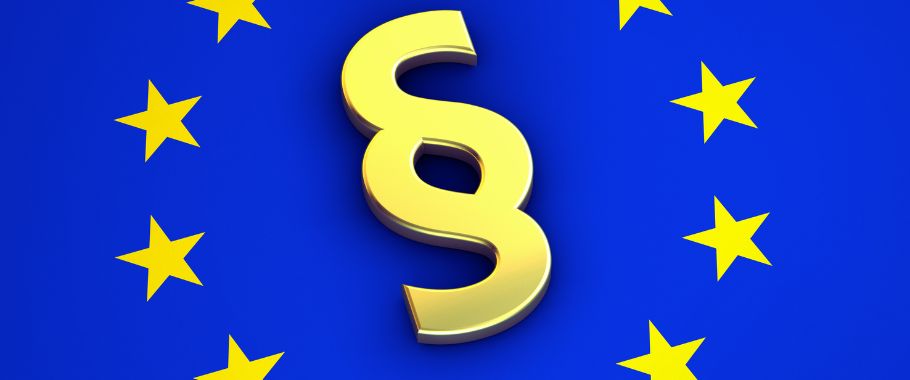
Increased checks on bank accounts by the National taxation Administration (KAS) are no longer speculation but hard reality. Since July 2022, the IRS has obtained unprecedented powers to view our bank accounts without the request to initiate formal taxation proceedings. In just 2 years, by May 2025, the taxation authorities made over 4,000 requests for disclosure of bank data. This is an alarming signal for all Pole whose finances leave a digital footprint. Experts are beating the alarm: the scale of supervision is increasing at an alarming rate, and in 2025, thanks to the fresh EU directives and national systems, our transactions are more transparent than ever. Do you know what transfers are most suspicious and how to defend your money from an unplanned visit from officials? Prepare for a fresh era of financial supervision.
New IRS powers: Numbers talk for themselves
The National taxation Administration (KAS) has had powers since July 2022 that changed the rules of the game in controlling the finances of citizens. The heads of taxation offices and taxation offices can now freely request access to bank data without waiting for formal investigation. The statistic are ruthless and show a clear upward trend. In the first period, from July 2022 to March 2024, a full of 407 requests by taxation offices and 3112 applications through customs and taxation offices. That's over 3.5 1000 controls in little than 2 years!
This trend is only increasing. In the following shorter period, from April 2024 to January 2025, respectively, was reported 325 and 1155 requests. fresh data from early 2025, covering the period from February to May, uncover further 596 requests440 of which came from customs and taxation offices and 156 from taxation offices. Summing up, in little than 3 years (July 2022 to May 2025) KAS sent to banks over 4600 applications about the disclosure of data. Robert Nogacki, legal counsel from the Chancellery of the Treasury, alarms: "It is worrying that the Ombudsman must intervene on the protection of the individual's rights vis-à-vis the ever-wide powers conferred on the authorities of the State to track citizens". This shows the scale of the problem and increasing concern.
Every wire transfer under the microscope: How does the surveillance strategy work?
In today's world, any banking transaction, regardless of the amount, leaves behind digital footprint. This way is meticulously recorded in banking systems and becomes a possible mark for taxation authorities. Only in the first half of 2025 the Elixir system, serving most home transfers, processed 562,07 million transactions with a full value of 2.3 trillion PLN. Compared to the same period in 2024, the number of operations was similar, but their value increased by awesome 6 percent. These giant numbers show how immense the database is available for the tax.
On request, the IRS can get comprehensive information about our account. This refers to the number and kind of accounts held, the exact amounts and dates of each transaction, the credit and debt agreements concluded, and even the trading of securities. Furthermore, banks are required to notify the General Financial Information Inspector (GIIF) of transfers exceeding the equivalent EUR 15 000, which is now around PLN 64 thousand. But it's just the tip of the iceberg. Even smaller, regular transactions can rise suspicions and initiate an avalanche of questions.
These transactions are the most suspicious. Watch the titles!
The taxation office does not track any insignificant transaction, but focuses on patterns and amounts that may indicate income concealment or taxation evasion. As reported by Mambiznes.pl portal, officials pay peculiar attention to respective types of transfers. First of all, these are foreign transfers, especially from countries considered taxation havens. Another informing signal is regular payments of akin amount from unknown sources, which may propose untaxed income. Transactions with titles that rise doubts, specified as ‘loan’, ‘for assistance’ or ‘reimbursement’, without further details.
One-off deposits at a advanced amount, which are not reflected in authoritative income, are almost a certain invitation to control. Like frequent transfers between individuals without formal business ties. It is worth remembering the past of Mrs Agnieszka from Gdańsk, who conducted online tutoring. Regular deposits of PLN 200-300 with titles of kind “for mathematics” resulted in a telephone call from the taxation office after a year. She had to explain that it was tax-free tutoring to a certain amount, which took quite a few time and stress. Always usage to avoid akin situations clear and precise transfer descriptions, e.g. "rent fee – January 2025" or "book acquisition – order No 12345". Avoid humorous comments, emoticons and besides general wording.
Extended scope of control: DAC7, STIR and CRS in 2025
Financial control mechanisms are becoming more complex and comprehensive. Since 2025, the EU Directive enters into force DAC7, which imposes on digital platform operators specified as Allegro, OLX or Vinted, the work to study on transactions of its users. This means that any sale on these platforms that exceeds certain thresholds will be automatically reported to the taxation office. This is simply a fundamental change that makes the current "hidden" online trade income full visible to the tax. The example of Mr. Rafał, a construction entrepreneur who learned about the control by telephone and later received a call to submit papers concerning a large transfer, shows how rapidly the organs can respond to signals.
In addition, the National taxation Administration has a strategy STIRthat allows for prompt blocking of bank accounts suspected of participating in taxation fraud. The Treasury Office informs that with his aid the taxation office blocks more and more bills each year, which proves its effectiveness. Additionally, there is an global standard Common Reporting Standard, already introduced in 2017, which allows automatic exchange of information on bank accounts between countries. This means that Polish IRS has access to data about your abroad accounts and abroad offices have access to information about your accounts in Poland. In 2025 there is no longer any mention of financial anonymity.
How do you defend yourself? applicable steps for each Pole
In the face of increasing financial supervision, transparency and appropriate preparation are the key to peace. If you receive regular transfers, do any gainful activities, or simply have larger amounts in your account, it is worth to act preventively. Remember, checking your bank account is not tantamount to accusing you of irregularities. This is simply a standard procedure that most frequently ends without consequences, provided that all transactions are legal and can be easy documented.
Here are any applicable tips on how to safe your finances:
- Document transactions: Conduct accurate documentation of all major operations, especially those over PLN 10 000. Save invoices, contracts and receipts.
- Precise transfer titles: Always usage clear and circumstantial descriptions. Avoid generals, jokes and emoticons.
- Make donations: household donations are exempt from tax, but only after their notification to the taxation office in due time and form.
- Avoid suspicious patterns: The IRS draws attention to regular cash payments in circular amounts, large one-off payments disproportionate to income, and frequent transfers between the accounts of different people in the household without clear justification.
- Be ready for questions: If you receive transfers from abroad (e.g. as a freelancer), have prepared papers explaining your cooperation. If you borrow money from your family, make a written agreement.
In the 2025 era of digital control, financial transparency is not an option but a necessity. By following the rules and taking care of the documentation, you can sleep peacefully, knowing that your finances are fine.
More here:
The IRS is tracking all transfer. Over 4,000 controls in 2 years are the beginning!















